You have likely heard that the drinking water on Nantucket is some of the best and purest water in the world. And, to a large degree, that’s true as the island draws its water from a single-source glacial aquifer. However, it’s important to note that not all properties have access to the Town’s municipal water system and many are serviced by a private well. Depending upon the area of the island, there may be different minerals and even contaminants present in the groundwater so it’s a good idea (and a requirement) to test potable water from time to time. If you currently own a property, or are considering purchasing a property, below are some common questions related to the many questions surrounding testing well water or installing town water.
Is the property serviced by a well or by Town water?
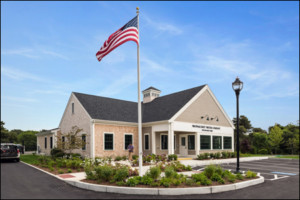
One of the easiest ways to determine whether you are on town water or a private well is whether you receive a water (not sewer) bill from Wannacomet Water Company? If yes, then your property is serviced by Town Water. If not, you are most likely serviced by a private well. Some properties are also serviced by both Town water and a private well, with the private well being used for irrigation.
How to test your property’s water
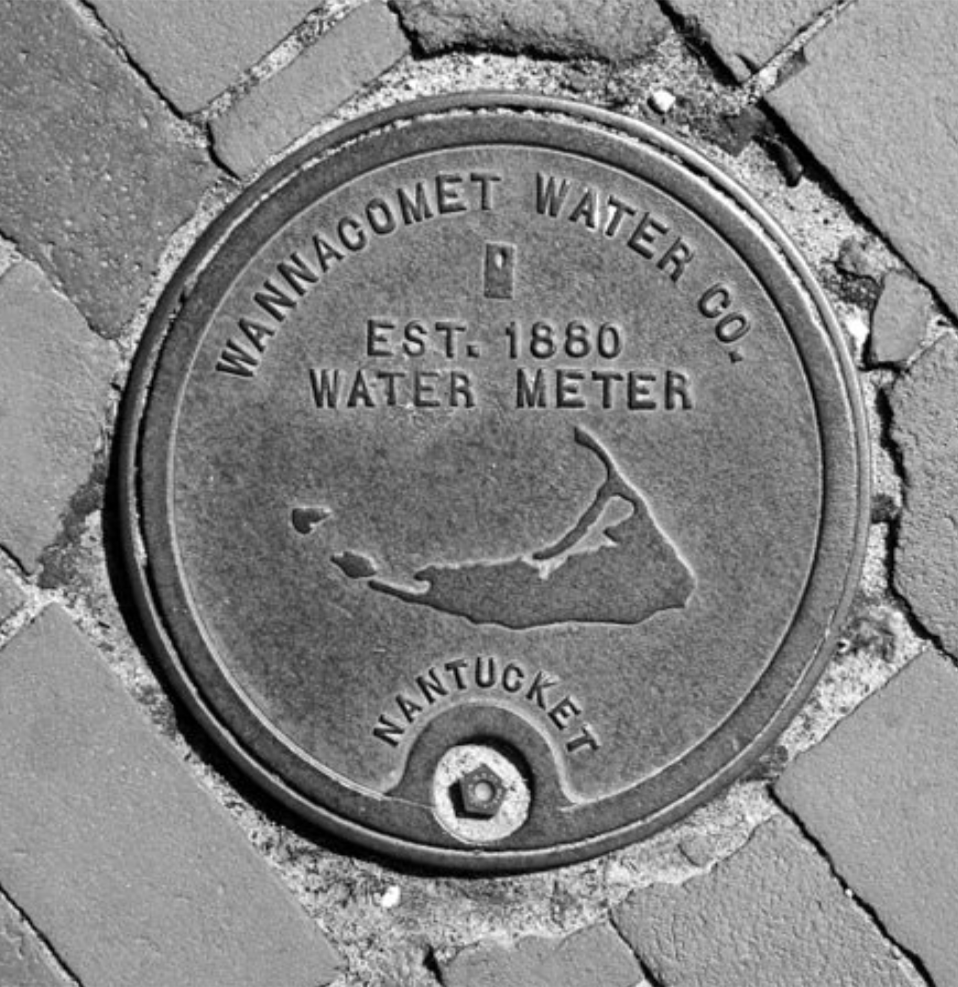
If you have well water, testing your water quality can be done with kits at the Nantucket Health Department. Complete instructions can be found with new water testing kits… and note their new address of 131 Pleasant Street. Alternatively, you could contact a private service to conduct the well water testing for you.
Testing water quality is not only important for health and safety reasons, it is a requirement of the Board of Health. In island areas defined as nitrogen-sensitive (Nantucket Harbor Watershed, Madaket Harbor Watershed, Hummock Pond Watershed, Miacomet Pond, Sesachacha pond, and Wellhead Protection areas), all potable water wells shall be tested on years that end with odd numbers (i.e. 2021, 2023, 2025 etc.). For properties located outside of defined nitrogen-sensitive areas, potable water wells should be tested on years that end with even numbers (i.e. 2020, 2022, 2024 etc.)
Can I tie into Town Water?
What if water testing reveals less than satisfactory results for minerals and/or contaminants or you simply prefer to tie into Town water, how does one do so?
First, you need to determine if your property is an area that is close to a water main. You can begin to determine this by plugging the property address into the GIS software and then by selecting “Utilities” under map themes. The water mains are identified in blue as in the picture below.
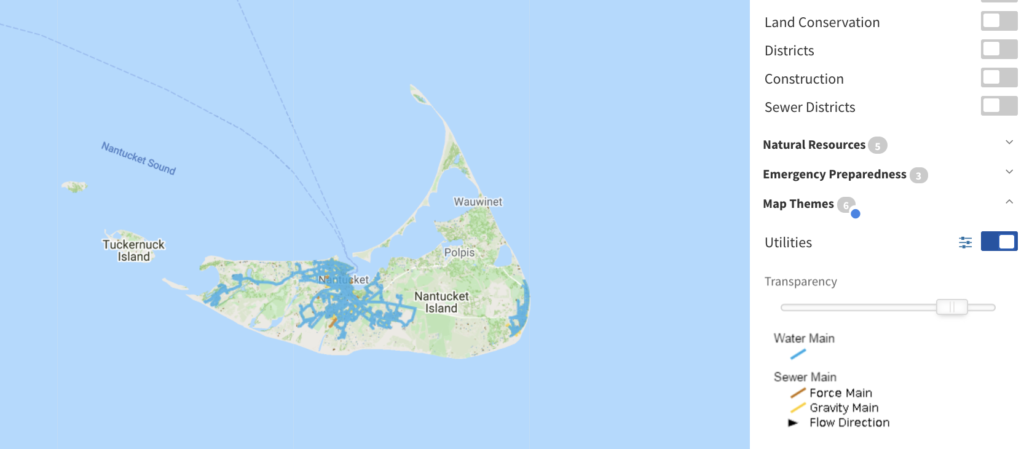
The next best step would be to contact Wannacomet Water Company to confirm the location and availability to tie into a nearby water main. If you confirm that tying in is feasible, the next step would be to contact one of a few excavation/installation companies (Toscana, Holdgate Partners) on the island to get an estimate of how much it would cost to dig and trench a new water line(s) from your home(s) to the water main. It’s helpful to provide them with any up-to-date surveys you have of your property so that they can be sure to avoid septic systems or any other underground utilities/services.
Once you confirm which company will be conducting the work, the next step is to fill out an application with the water company. That can be found here.
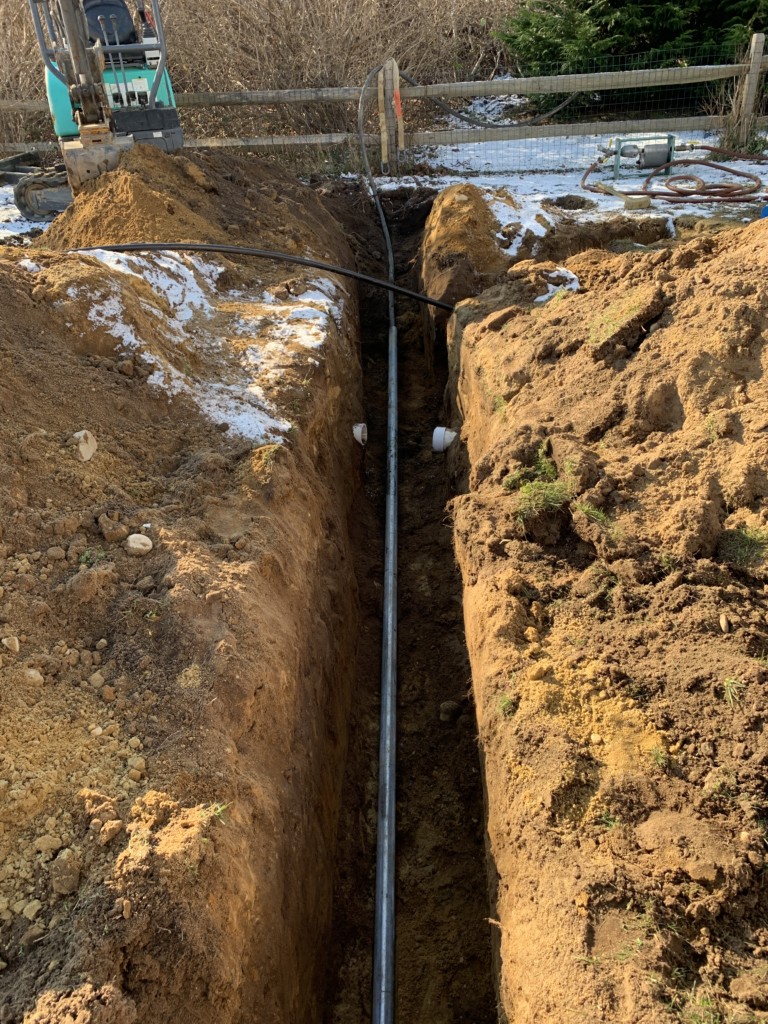
How much does it cost to tie into Town water?
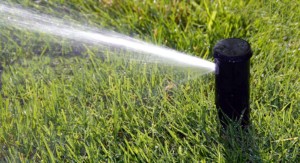
Much of the cost to tie into town water is predicated on how many dwellings are on the property, and how far the property is from the water main. These costs are best estimated by the excavation and installation companies but could be anywhere from around $5,000 for trenching and installation, to a much higher amount depending upon whether the lines would need to cross any roads or adjacent properties. In addition to these costs, there is also a $5,000 connection fee due to the water company.
What is a Deduct Meter
If a property is on both Town water and the Town’s sewer system, you may want to consider a deduct metering system. This is particularly true if you use Town water to fill a swimming pool, for irrigation or other high-water use activities wherein the water is not going into the municipal sewer system. This will directly reduce your sewer bill. The application form can be found here, and you can certainly contact Wannacomet water for more information.

